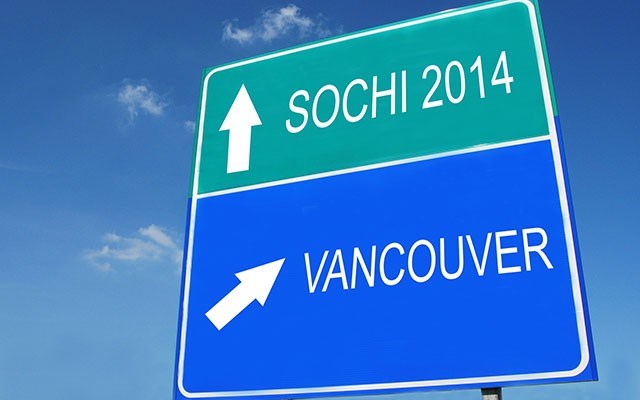When Whistler learned that it was to host the 2010 Games, along with Vancouver, it could hardly contain its excitement.
Thousands had gathered in the village to await the announcement streaming live from Prague that July 2, 2003 — and when International Olympic Committee president Jacque Rogge read out the word "Vancouver" as the winning host it set the resort on a course that continues to this day.
In looking back, one has to realize how unique it was that Whistler had a mayor at the time, Ken Melamed, who started out along the road to the 2010 Games firmly opposed to the resort hosting the mega-event. His concerns were many including the historical way Olympics had been hosted, which was to just build, build, build your way to the Games (like Sochi has for 2014).
Building our way to hosting a mega-event was not going to be a successful strategy for Whistler.
There were also many who attended the almost-weekly public meetings on preparing for the Games who were opposed to hosting because they felt Whistler didn't need any more visitors — we were already #1. And if history was anything to go by, they thought, visitors would avoid Whistler like the plague in the lead up to the event knowing that the venue was likely going to be a construction zone.
Well, as it turned out most of Whistler was pretty glad to have the Games in town as the global recession hit in 2008. In many ways it insulated us from the worst impacts of the financial meltdown, as Olympic preparations had to continue, construction on the athletes' village was full-speed ahead and the cache of being a host venue kept conference and individual traveller interest piqued. And it drew us together as a community, a province and a nation.
Today that Olympic spirit is visible almost every weekend at the Whistler Olympic Plaza — it is apparent in the constant line-up by visitors, and even the occasional resident, to have their pictures taken with the Olympic rings.
And there is no denying the other great legacies for Whistler including the Cheakamus Crossing neighbourhood, and the on-going arrangement with the province for Resort Municipality Initiative funding, which is used to pay for events, or support initiatives that will boost tourist spending in the resort, thereby boosting provincial coffers.
The 2010 Games weren't perfect — but Canada, B.C., Vancouver and Whistler can stand proud as we reflect on how we hosted the Games. They were inclusive, celebratory, successful and for the most part on budget at $3 billion —$8 billion if all related infrastructure is added.
The IOC made the right decision in awarding us the Games.
One wonders if the same can be said for the IOC's decision to award the Games to Sochi, Russia? This was a bid that was on paper — virtually no venues existed, the transportation system was almost non-existent, the accommodation also almost non-existent.
The Games are being held by a country whose leaders and laws are homophobic and where a popular Russian TV star Ivan Okhlobystin recently said that he would put all gays, alive, into an oven — can you say Holocaust?
And while this display of human rights abuse is shocking it is not the only one. The media has reported for months that thousands of temporary workers brought in to construct the venues have been cheated of their wages, forced to work 12-hour shifts with few days off and had their passports held. (www.hrw.org/people-and-power-2014-sochi-olympics).
This is a Games with a budget of over $50 billion. Can you imagine the amount of humanitarian work that could be done for that amount of money inside Russia?
And what of the hundreds of journalists and visitors who arrived to find that their hotel rooms weren't finished? Hard to believe you could spend $50 billion and still not be finished. The original Games budget was put at $12 billion — but has ballooned, claim opposition leaders in Russia, because $30 billion has gone to corruption in the construction industry. Case in point might be the construction of the 29-kilometre road from Adler, where events such as hockey, speed skating and figure skating will be held, to the mountain sports cluster of Krasnaya Polyana.
"You could have paved this road with five million tons of gold, or caviar, and the price would have been the same," opposition leader Boris Nemtsov said in an interview with the RBK television channel.
There is more, much more, including the arrest and jail sentence for a Russian activist for swearing just before he was planning to present a report on the harmful environmental impacts of the Games this week. Convenient.
(Should we mention the rumours that wild Orcas were to be flown to Sochi to be put on display, or the hundreds of stray dogs that are being killed to clean up the resort?)
With a new leader in place at the IOC, Thomas Bach, perhaps it is time for the organization to ask some hard questions of itself. How does choosing a country like Russia, exemplify the Olympic ideals? It doesn't.
And how can the IOC condone the spending of this much money on venues when there is clearly so much need in the world.
As much as we celebrate Canada's athletes at the Games, and cheer for their success, it is time for some global reflection on how this mega event is hosted in the future.




